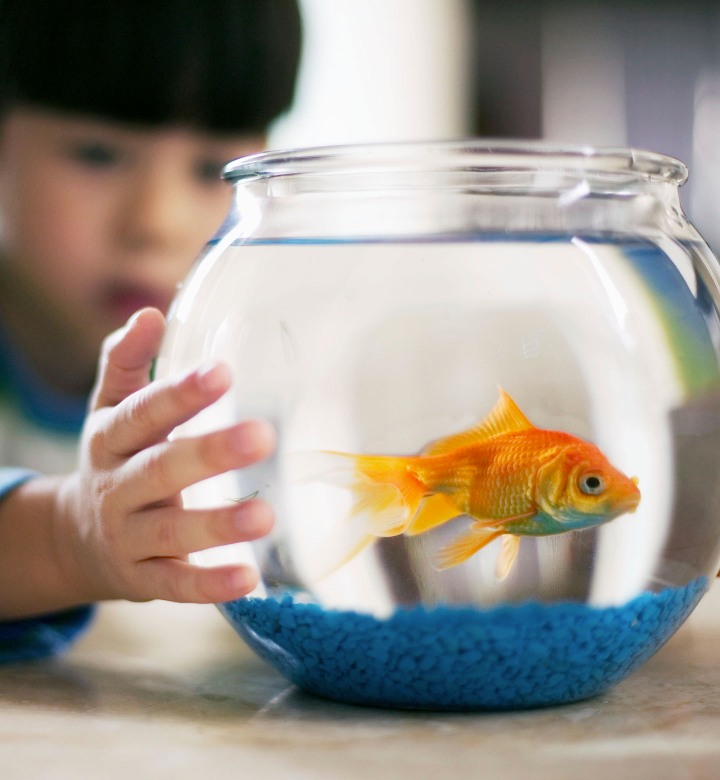My son desperately wanted a goldfish for his fifth birthday and—parents of the year—we said yes! We got the tank, the air pump, all the required accoutrements to become fish parents, then finally, the goldfish. But it died on day one. My son was so serious about taking proper care of his first pet that we couldn’t tell him. Instead, at 39 cents a fish, we quickly replaced it. A week later, it died again. An express bus to the pet store later, a new goldfish joined our aquarium. (We used the tank’s leafy decor as our cover and told our son the fish was hiding, then swapped a new one in.)
Fast forward a few weeks and another dead goldfish. FWIW, we have five tetras in the tank, too, and they’re doing just fine. This time, we haven’t replaced it, but my son hasn’t commented on it either. (He’s pretty enamored with those playful tetras.) Now, we’re doing anything and everything to troubleshoot the problem before picking up another fish. My question for you: Are we horrible parents? Is it bad that we can’t just tell him his fish died? — Rachel, New York
First and foremost, you are not a bad mom! Take that thought out of your head. Most parents would be tempted to do just that: Replace the fish.
It’s important to note that children’s understanding of death changes with age and it’s not until they’re nine years old that they can really grasp that death is permanent and personally relevant. When they’re 3 and 4, they do sometimes feel scared when it comes to death related imagery—like the Grim Reaper—but they don’t really get it. For younger, grade school children, like your son, they likely understand that death is permanent and that all living things die, but they still don’t believe it will happen to them.


